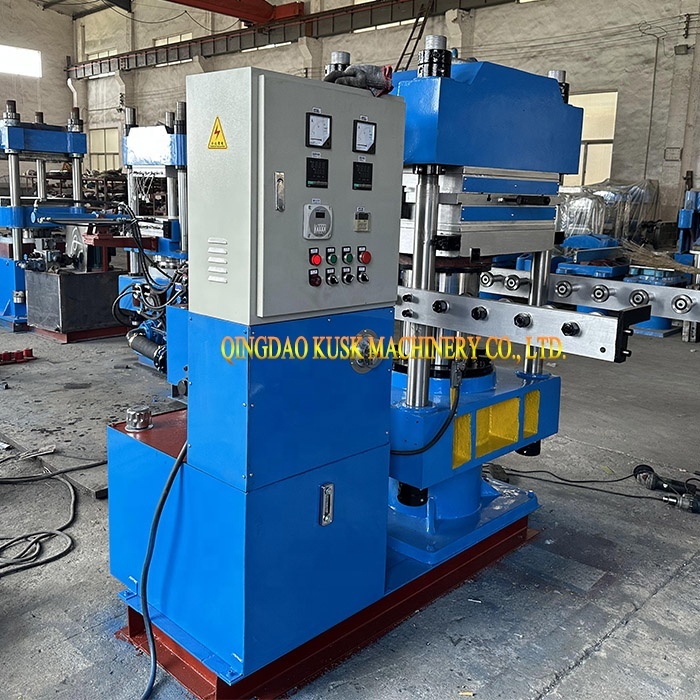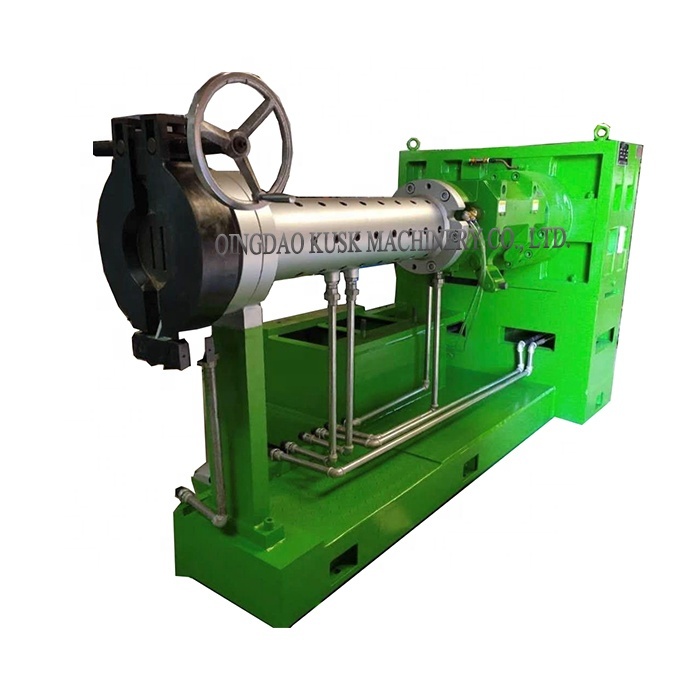Professional manufacturer with the design, development and production of rubber and plastic machinery
A Deep Dive into Hydraulic Press Machines: The Backbone of Sheep Licking Salt Block Production
Sep 12,2025
A Deep Dive into Hydraulic Press Machines: The Backbone of Sheep Licking Salt Block Production
Table of Contents
- Introduction to Hydraulic Press Machines
- The Importance of Sheep Licking Salt Blocks
- How Hydraulic Press Machines Work
- Key Features of Hydraulic Press Machines
- Benefits of Using Hydraulic Presses in Salt Block Production
- Types of Hydraulic Presses for Salt Block Manufacturing
- Applications Beyond Salt Block Production
- Maintenance and Safety Considerations
- The Future of Hydraulic Press Technology
- Conclusion
- FAQs
Introduction to Hydraulic Press Machines
Hydraulic press machines are essential tools in various industries, particularly in the production of sheep licking salt blocks. These machines utilize hydraulic force to compress materials into desired shapes, ensuring efficiency and consistency. With the increasing demand for high-quality salt blocks, understanding hydraulic presses' mechanics and applications is crucial.
This article provides an in-depth look at hydraulic press machines, particularly their role in sheep licking salt block production. We will explore how these machines operate, their benefits, and their significance in the agricultural sector.
The Importance of Sheep Licking Salt Blocks
Sheep licking salt blocks are vital for the health and well-being of sheep. These blocks provide essential minerals and nutrients that sheep need for optimal growth and reproduction. The production of these blocks requires precision and efficiency, which is where hydraulic press machines come into play.
By ensuring uniformity and compactness, hydraulic presses contribute to the production of high-quality salt blocks that meet the nutritional needs of sheep. The right formulation and production process can significantly affect the effectiveness of these salt blocks, making hydraulic presses indispensable in the manufacturing process.
How Hydraulic Press Machines Work
Hydraulic press machines operate based on Pascal's principle, which states that pressure applied to a confined fluid is transmitted undiminished throughout the fluid. Here's a detailed breakdown of how these machines function:
1. **Hydraulic Fluid**: The machine uses hydraulic fluid, typically oil, to transmit force. The fluid is stored in a reservoir and is pumped into the cylinders of the press.
2. **Piston Operation**: The hydraulic fluid pushes the piston, generating a significant amount of force. This force can be adjusted by varying the pressure of the hydraulic fluid.
3. **Compression Cycle**: In the context of salt block production, the raw materials (salt, minerals, and binders) are placed in a mold. The press applies pressure to compact these materials into a solid block.
4. **Cooling and Setting**: Once the material is compressed, it may need to cool and set before being ejected from the mold.
This process not only ensures that the salt blocks are uniformly shaped and compact but also enhances their durability and effectiveness when used by livestock.
Key Features of Hydraulic Press Machines
Understanding the key features of hydraulic presses can help manufacturers select the right equipment for their needs. Here are some essential characteristics:
1. **Adjustable Pressure Settings**: Operators can modify the pressure to suit different materials and production requirements, ensuring flexibility in manufacturing.
2. **High Compression Force**: Hydraulic presses can generate a substantial amount of pressure, allowing for the efficient compaction of dense materials like salt and minerals.
3. **Automatic Controls**: Many modern hydraulic presses come equipped with programmable controls that enhance automation and reduce labor costs.
4. **Safety Features**: Built-in safety mechanisms protect operators and equipment, reducing the risk of accidents during operation.
5. **Durable Construction**: Hydraulic presses are built to withstand high levels of pressure and heavy use, ensuring longevity and reliability.
Benefits of Using Hydraulic Presses in Salt Block Production
Employing hydraulic press machines in the production of sheep licking salt blocks offers several advantages:
1. **Increased Efficiency**: Hydraulic presses can significantly reduce production times, allowing manufacturers to meet high demands with minimal downtime.
2. **Consistent Quality**: The uniform compression provided by hydraulic presses ensures that each salt block has the same density and shape, leading to more effective nutritional delivery to livestock.
3. **Versatility**: Hydraulic presses can handle various materials and formulations, making them suitable for different types of salt blocks or other agricultural products.
4. **Reduced Labor Costs**: Automation features can minimize the need for manual labor, thereby lowering operational costs and minimizing human error.
5. **Improved Product Durability**: The high compression force results in sturdier blocks that withstand handling and transport without breaking.
Types of Hydraulic Presses for Salt Block Manufacturing
Different types of hydraulic presses can be utilized in the manufacturing of sheep licking salt blocks. Here are some common varieties:
1. **C-Frame Hydraulic Presses**: These versatile presses are suitable for various applications, including the production of salt blocks. They feature a C-shaped frame that allows for easy access to the working area.
2. **H-Frame Hydraulic Presses**: Ideal for heavier applications, H-frame presses provide additional stability and support, making them great for producing larger salt blocks.
3. **Cabinet Hydraulic Presses**: These compact machines are perfect for small-scale production, offering flexibility and efficiency in limited spaces.
4. **Four-Column Hydraulic Presses**: Known for their robustness, four-column presses deliver uniform force distribution, making them ideal for producing high-quality, dense salt blocks.
5. **Custom Hydraulic Presses**: Manufacturers can also design custom hydraulic presses tailored to specific production needs, ensuring the best results for their business.
Applications Beyond Salt Block Production
While hydraulic presses play a crucial role in the production of sheep licking salt blocks, their applications extend far beyond this industry. Here are some notable uses:
1. **Food Industry**: Hydraulic presses are often used to produce various food products, including cheese and meat products, where consistent pressure is necessary for quality control.
2. **Metal Forming**: In the manufacturing sector, hydraulic presses are essential for shaping metals into specific forms, aiding in the production of machinery and tools.
3. **Plastic and Composite Materials**: These presses can also be used in molding plastic parts and composite materials, showcasing their versatility across industries.
4. **Pharmaceuticals**: In the pharmaceutical industry, hydraulic presses are utilized for tablet compression, ensuring uniformity and dosage accuracy.
5. **Wood and Paper Products**: Hydraulic presses assist in the production of pressed wood products, which are increasingly popular in furniture manufacturing.
Maintenance and Safety Considerations
Proper maintenance and safety measures are paramount in the operation of hydraulic presses. Here are some key points to consider:
1. **Regular Inspections**: Routine checks of hydraulic fluid levels, seals, and pressure gauges are essential to ensure the machine operates efficiently and safely.
2. **Safety Gear**: Operators should always wear appropriate safety gear, including gloves, safety glasses, and steel-toed boots, to protect against potential hazards.
3. **Emergency Protocols**: Establishing clear emergency procedures can prevent accidents and ensure a safe working environment.
4. **Training**: Comprehensive training programs for operators are vital. Workers should understand the machine's functions, safety features, and emergency shutdown procedures.
5. **Lubrication**: Keeping moving parts well-lubricated reduces friction and wear, extending the lifespan of the hydraulic press.
The Future of Hydraulic Press Technology
The future of hydraulic press technology looks promising, with ongoing innovations aimed at enhancing machine efficiency and safety. Key trends include:
1. **Smart Technology Integration**: The incorporation of IoT and AI technologies is set to revolutionize hydraulic presses. Smart systems can monitor performance, predict maintenance needs, and optimize workflows.
2. **Energy Efficiency**: As sustainability becomes increasingly important, hydraulic presses are being designed to use less energy while maintaining performance levels.
3. **Advanced Materials**: The development of new materials for construction and components can improve the durability and performance of hydraulic presses.
4. **Automation**: The push for greater automation in manufacturing processes is leading to more sophisticated hydraulic presses that require minimal human intervention.
5. **Customization**: Future hydraulic presses may offer more customizable features to cater to specific industry needs, ensuring manufacturers can optimize their production processes effectively.
Conclusion
Hydraulic press machines are undeniably the backbone of sheep licking salt block production, offering a blend of efficiency, consistency, and versatility. Their advanced technology not only enhances the quality of the salt blocks but also contributes to the overall productivity of the agricultural sector. By understanding the mechanics, benefits, and future trends of hydraulic presses, manufacturers can better position themselves for success in an ever-evolving industry.
FAQs
1. **What is a hydraulic press machine?**
A hydraulic press machine uses hydraulic force to compress materials into specific shapes, widely used in various industries, including agricultural production.
2. **How do hydraulic press machines benefit salt block production?**
They enhance efficiency, ensure uniform quality, reduce labor costs, and improve product durability.
3. **What types of hydraulic presses are used in salt block manufacturing?**
Common types include C-frame, H-frame, cabinet, four-column, and custom hydraulic presses.
4. **What safety measures should be taken when operating hydraulic presses?**
Regular inspections, wearing safety gear, establishing emergency protocols, and providing operator training are crucial for safe operation.
5. **What is the future of hydraulic press technology?**
The future involves smart technology integration, energy efficiency improvements, advanced materials development, increased automation, and customization options for specific industry needs.
Hot Tags:
PREVIOUS:
Contact Us
E-mail:
tender701@gmail.com
tender701@163.com
Phone/WhatsApp:
+86 137 9243 6835
Address:
Huangshan Economic Zone, Huangdao, Qingdao,China



